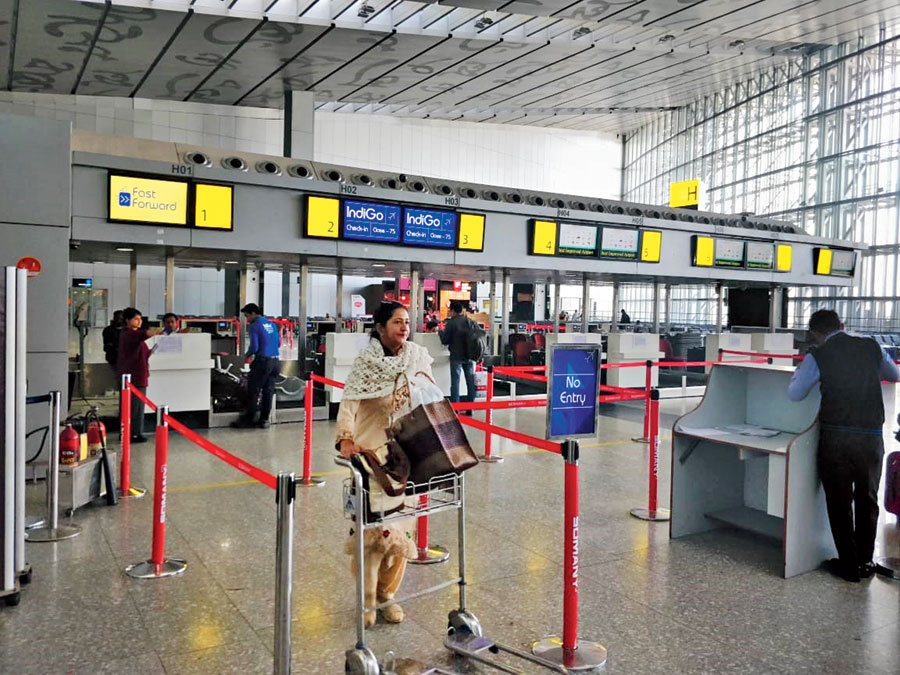Inline baggage screening took off at Calcutta airport on Tuesday, although on a trial basis.
The new system can become fully functional in the international section on February 18, but it was made operational on Tuesday afternoon for IndiGo’s Calcutta-Dhaka flight, an airport official said.
In inline baggage screening, passengers don’t have to stand in a queue to get their registered luggage screened by a standalone X-ray machine.
“We have started a trial of the machines with a passenger flight. From now on, every day the trial will be conducted on one or two international flights,” airport director Kaushik Bhattacharya said.
On Tuesday, passengers of the Calcutta-Dhaka flight were told by the airline personnel that they could directly deposit their registered baggage at the check-in counter. The machine screened at least 250 suitcases and bags.
The check-in had started around 1.30pm and got over by 3.10pm. “The system worked without a glitch,” Bhattacharya said.
Plans are on to commission the system in the international section by February 18, he said. All three international check-in islands and four of the five check-in islands in the domestic section will have the facility.
AirAsia and GoAir passengers will not be able to use the facility for now.
The long delayed system received mandatory clearance from the Bureau of Civil Aviation Security last week.
The trials on domestic flights will start on February 17 and the system should be commissioned in the section by the end of this month, the airport director said.
The system is likely to be installed in the eighth check-in island of the domestic section, which is shared by AirAsia and GoAir, in around six months.
In the absence of inline baggage screening, passengers have to stand in long queues in front of standalone X-ray machines to get their registered baggage checked. The wait can stretch to half an hour during rush hours.
Some of the standalone X-ray machines will be shifted to the arrival section and used to screen the baggage of domestic passengers on transit. A few will be kept on standby in case the new system fails.











